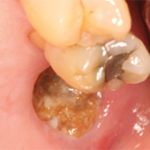Researchers found an increased frequency of pro-inflammatory TH17 phenotype in scleroderma subjects compared with healthy controls.
They also showed, for the first time, that skin-derived IL-11 cytokine appears to be a requirement for the generation of the TH17 T cell response.
ad goes here:advert-1
ADVERTISEMENT
SCROLL TO CONTINUE
“There is a functional interplay,” Mr. Ong said, “between the microenvironment and the periphery in generating a pro-inflammatory TH17 response in scleroderma.”
Thomas R. Collins is a medical writer based in Florida.
ad goes here:advert-2
ADVERTISEMENT
SCROLL TO CONTINUE
Second Chance
If you missed this session, it’s not too late. Catch it on SessionSelect.
References
- Miller PD, Pannacciulli N, Brown JP, et al. A randomized double-blind study of denosumab compared with zoledronic acid in postmenopausal women with osteoporosis previously treated with oral bisphosphonate. Presented at the 2015 ACR/ARHP Annual Meeting. Nov. 7–11, 2015. Abstract 898.
- Roux, C, Hofbauer, LC, Ho PR, et al. Denosumab compared with risedronate in postmenopausal women suboptimally adherent to alendronate therapy: Efficacy and safety results from a randomized open-label study. Bone. 2014 Jan;58:48–54.
- Recknor C, Czerwinski E, Bone HG, et al. Denosumab compared with ibandronate in postmenopausal women previously treated with bisphosphonate therapy: A randomized open-label trial. Obstet Gynecol. 2013 Jun;121(6):1291–1299.
- Kendler DL, Roux C, Benhamou CL, et al. Effects of denosumab on bone mineral density and bone turnover in postmenopausal women transitioning from alendronate therapy. J Bone Miner Res. 2010 Jan;25(1):72–81.
- Zhou Q, Wang H, Schwartz D, et al. HA20: A novel autoinflammatory disease caused by haploinsufficiency of A20, encoded by TNFAIP3. Presented at the 2015 ACR/ARHP Annual Meeting. Nov. 7–11, 2015. Abstract 899.
- Vande Walle L, Van Opdenbosch N, Jacques P, et al. Negative regulation of the NLRP3 inflammasome by A20 protects against arthritis. Nature. 2014 Aug 7;512(7512):69–73.


